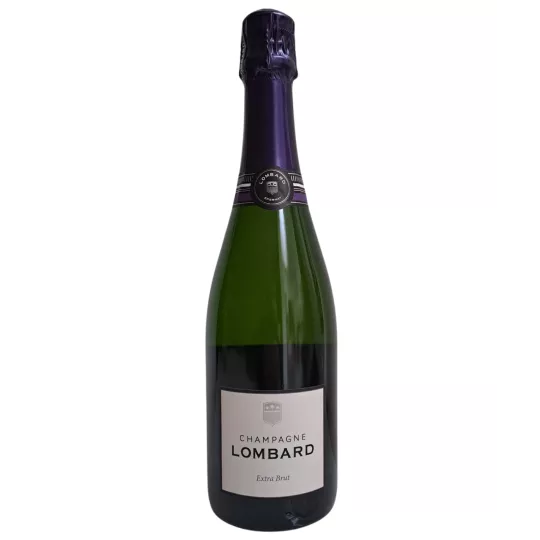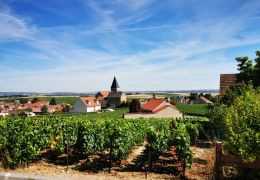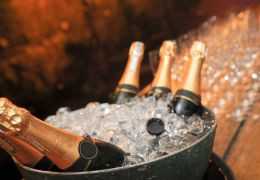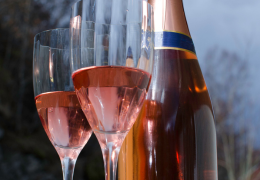AIDA has established itself as a specialist in champagne-infused confectionery, offering a diverse and indulgent...

The conservation of champagne is essential for the wine to retain its flavor, aroma and freshness. To best preserve the champagne, it is recommended to store it in a dark and cool place, away from any direct source of light or temperature variations. Also, it should be kept on its side in order to maintain even pressure in the bottle. The ideal temperature for storing champagne is between 10 and 12 degrees Celsius, although this may vary depending on the type of wine; in general, white and rosé champagnes require cooler temperatures than vintage varieties.
In addition, you should also store champagne away from strong odors, as these can seep into the wine itself. This means avoiding, where possible, storing champagne next to foods such as onions or garlic. Also, it is important to ensure that the cork remains moist so that no air enters the bottle and disturbs the integrity of the sparkling wine. For best results, avoid moving or shaking bottles containing champagne, as this may upset the delicate balance of carbon dioxide bubbles.
Proper storage of champagne extends its shelf life and taste; however, once opened, it should be consumed within 2-3 days for best quality. Unopened bottles can typically last up to 3 years when stored in ideal conditions, but this varies depending on the type of champagne being stored. If a bottle has been exposed to severe temperature swings, it is best to consume it quickly before it suffers further damage.

Satchells, established in the 1880s, stands out among newer wine and champagne businesses through its longstanding heritage and reliable reputation. Open Monday through Saturday, Satchells provides a diverse selection of high-quality wines and champagnes sourced internationally, complemented by an impressive variety of malt whiskies ideal for any occasion.Beyond exceptional beverages, Satchells emphasizes tradition, personalized customer care, and comprehensive services, including wine...

Buying champagne online offers convenience, fast delivery, and competitive prices, but it often comes with biased opinions and a lack of personalized guidance. When looking for an expert recommendation, visiting a champagne dealer is the best solution. Many high-street stores have well-stocked champagne sections with knowledgeable staff ready to help. These professionals provide genuine insights and help you choose the perfect bottle based on your taste and budget.One excellent example in...

Champagne often carries an air of complexity, with its intricate details potentially intimidating newcomers. This article by We Love Champagne simplifies the subject, making it approachable for less experienced enthusiasts while offering intriguing insights for seasoned connoisseurs. One key point debunks a common myth: champagne isn’t exclusively white. In fact, varieties crafted from red grapes like Pinot Noir showcase stunning amber or red hues, adding rich diversity to champagne...

Saignée rosé champagne is a type of champagne produced by adding a little red grape juice to brut champagne, which gives it a rosy hue and a slightly fruity taste. To taste saignée rosé champagne, it is important to serve it at the right temperature, to inspect its appearance to check that it has a pale pink color and a fine and abundant foam, to breathe deeply to appreciate its fruity aroma and to savor its fruity and slightly tangy taste with a long and delicate finish. Champagne rosé de...